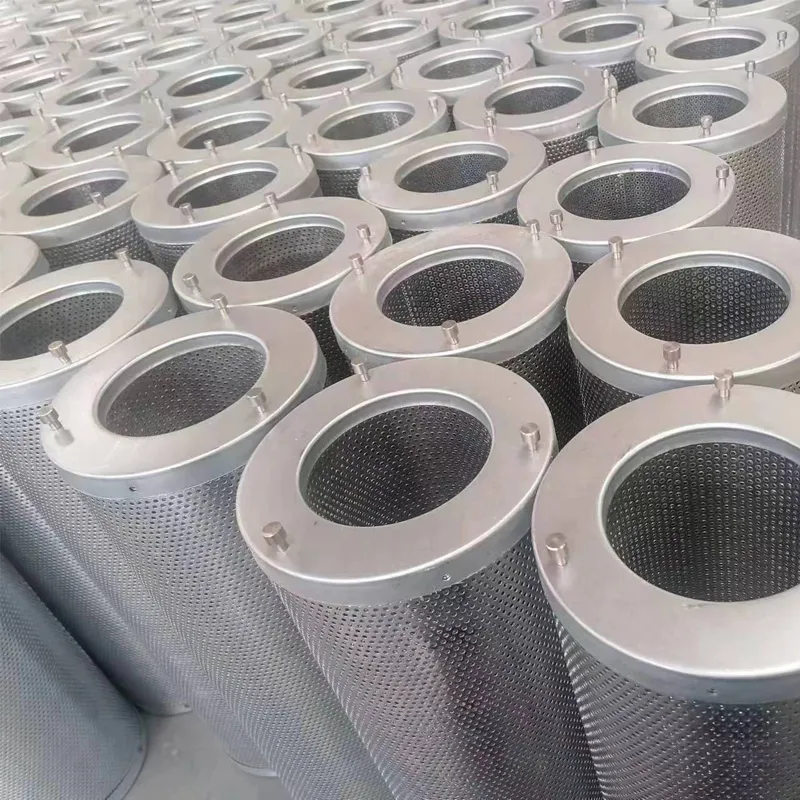 Tel:
+8615930870079
Tel:
+8615930870079
јан . 02, 2025 03:23 Back to list
turbine filter
Understanding Turbine Filters Key Components and Applications
Turbine filters play a pivotal role in various industries, especially when it comes to ensuring the efficient functioning of turbine systems. These filters are designed to remove harmful contaminants from liquids and gases before they enter crucial machinery components. As turbines are employed in power generation, aviation, and other industrial applications, maintaining their operational integrity is essential. This article delves into the importance, types, and applications of turbine filters.
What are Turbine Filters?
Turbine filters are integral components that improve the reliability and performance of turbine systems. They serve the primary function of filtering out particulates, debris, and impurities from the fuel or oil supply, significantly reducing the risk of system failure. By removing potential contaminants, turbine filters help in maintaining the efficiency and longevity of the turbine, making them a critical asset in any turbine setup.
How Do Turbine Filters Work?
Turbine filters operate primarily through physical separation. They utilize various materials and designs to capture unwanted particles, typically ranging from small debris to larger particulate matter. The filter media can consist of several materials, including metal meshes, synthetic fibers, or activated carbon, depending on the application requirements.
When the fluid enters the filter, it passes through the filter media, which traps particles based on their size and density. The filtered fluid then flows smoothly into the turbine, ensuring that only clean and contaminant-free fluid engages with sensitive components. Regular maintenance and timely replacement of these filters are vital to ensure optimal performance.
Types of Turbine Filters
There are several types of turbine filters, each designed for specific applications and operating conditions
1. Self-Cleaning Filters These filters utilize automated mechanisms to clean themselves while in operation, reducing the need for manual maintenance. They are ideal for applications where continuous operation is essential.
2. Magnetic Filters These filters employ magnetic fields to attract and capture metallic particles. They are suitable for systems where metal contamination is a concern.
turbine filter

4. High-Temperature Filters Specific industries may require filters that can withstand extreme temperatures. These filters are made from specialized materials that maintain their structural integrity under high heat.
Applications of Turbine Filters
The applications of turbine filters stretch across various industries, highlighting their versatility and importance.
1. Power Generation In gas and steam turbine systems, filters ensure that contaminants do not impede the combustion process, thus enhancing efficiency and reducing emissions.
2. Aerospace Turbine filters in aviation engines protect against debris and reduce the risk of engine failure, which can lead to catastrophic outcomes.
3. Marine Engineering In ships and marine vessels, turbine filters play a significant role in protecting engine systems from seawater and other contaminants.
4. Oil and Gas Industry Turbines used in extraction and processing demand stringent filtration to prevent damage to sensitive equipment.
5. Manufacturing Industries utilizing turbines in their machinery often rely on filters to maintain production quality and efficiency.
Maintaining Turbine Filters
Proper maintenance of turbine filters is crucial to ensure their effectiveness. Regular checks should be made to quantify filter efficiency and to identify when replacements are needed. The type of fluid being filtered, the operating environment, and the particular turbine's requirements will dictate the frequency and method of maintenance.
Conclusion
Turbine filters are fundamental components that protect turbine systems across various industries. By ensuring that only clean fluid enters sensitive machinery, these filters enhance performance, efficiency, and longevity. Understanding their design, operation, and applications can help organizations implement better maintenance strategies, reducing downtime and increasing productivity. Whether in power generation, aviation, or manufacturing, the importance of high-quality turbine filters cannot be overstated, making them a crucial consideration in any turbine-driven operation.
-
Nano Fiber Technology: Revolutionizing Cartridge Dust Collector FiltersNewsAug.06,2025
-
How Activated Carbon Air Cartridges Eliminate OdorsNewsAug.06,2025
-
Dust Filter Cartridge Handling Fine Particulate MatterNewsAug.06,2025
-
Cartridge Dust Collector Filter for Welding Fume ExtractionNewsAug.06,2025
-
Activated Carbon Filter Cartridge Effectiveness Against VOCsNewsAug.06,2025
-
Activated Carbon Air Filter Cartridge Benefits ExplainedNewsAug.06,2025

 Email:
Email:





